Although they are tragic and difficult to experience, incidents that result in the loss of life of family members or loved ones do occur, and it’s important to have an understanding of the legal implications of these incidents, especially if you are seeking damages. The most significant thing to understand is the difference between accidental death and wrongful death.
At Davana Law, we have helped hundreds of our clients receive proper compensation for many different personal injury and accident claims. We have a strong track record in successful personal injury, automobile accident, brain injury, and many other types of cases. Let us provide you with assistance from a top-notch wrongful death lawyer, who will not charge a dime until you’ve successfully received proper damages from the loss of your loved one.
Here are the legal definitions and differences between “accidental” and “wrongful” deaths:
The Definition of an “Accidental Death”
In the legal sense, this type of death is a result of an unforeseeable or unintended event, and it is not caused by the negligence of another party.
In the event of a loss of life, if it is determined that a person or entity besides the deceased did not act unreasonably or negligently in order to contribute to the death, then it is most likely deemed accidental.
Here are four examples of accidental deaths:
- Choking/Suffocation: An accidental death caused by an obstruction of food or other objects stuck within the victim’s throat.
- Blunt-Force: An accidental death caused by the impact of a stray projectile or falling object.
- Workplace Accidents: Accidental deaths that occur within a work environment, particularly in dangerous ones such as mines, oil rigs, factories, and other industrial areas. These often pertain to equipment malfunctions, explosions, or other elements inherent within the work environment. Though the employer may be negligent, a civil action is often hindered through the provision of workers’ compensation.
- Poison: An accidental death from toxic liquids, solids, or vapors, where no negligent party caused it to enter the deceased’s body.
The Definition of a “Wrongful Death”
In contrast to accidental death, wrongful death is when demise occurs that involves clear negligence or wrongdoing by another individual. There are several specific indicators that must be present in order to prove a wrongful death has occurred.
The victim’s family must establish the accused party’s negligence as the direct cause of death. They must also describe how this negligence directly caused the victim’s death.
Additionally, they should prove that the accused violated the Duty of Care they were required to provide for the victim. “Duty of Care” is defined as the legal obligation of an individual or organization to avoid any actions, demands, or omissions of either that could otherwise result in the foreseeable injury or loss of life of others.
Here are three examples of wrongful death:
- Elder Abuse and Neglect: Nursing facilities can be held liable for the wrongful death of an elderly loved one if they did not adequately monitor, care for, and provide proper medical attention.
- Consumer Abuse: If a person dies from the use of a particular product, the manufacturer and company that sold it can be accused of its wrongful sale which resulted in wrongful death.
- Medical Malpractice: Hospitals, physicians, surgeons, nursing staff, and others can face legal action for failing to follow standard procedures, which directly resulted in the death of a patient.
Davana Law Firm: Distinguished Wrongful Death Lawyer in Los Angeles, CA
The loss of a loved one is not only a painful experience but can also leave you with many burdens that can be eased through some financial support. If your loved one was the victim of another party’s negligence, hire a qualified wrongful death lawyer to assist you in getting the compensation you and your family deserve.
At Davana Law Firm, we’ve helped hundreds of clients in receiving the highest amount in damages and compensation for a variety of different cases, including personal injury, automobile accidents, slip-and-fall incidents, and more. Our legal experts will build your case and work tirelessly to ensure its success, charging zero fees until your case has won.
Contact us at (818) 501-1055 to learn more about our legal services.


